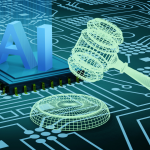Introduction
The intersection of celebrity culture and technology has become one of the defining features of modern society. As innovation drives global communication, entertainment icons and political leaders increasingly share the same digital spaces, influencing millions with a single post or comment. The ability to command attention through technology has turned fame into a powerful political tool.
Artificial intelligence, social media algorithms, and global connectivity have amplified celebrity voices to unprecedented levels. Leaders once relied on traditional media to shape narratives, but today, entertainers, athletes, and influencers can rival entire governments in reach and impact. This growing overlap between digital power and public image is transforming how the world understands influence and authority.
Technology as the Engine of Modern Influence
Technology has changed not only how information is shared but who gets to share it. Social platforms like X, TikTok, and Instagram allow individuals to communicate directly with global audiences without intermediaries. Artificial intelligence curates these interactions, deciding which messages gain traction and which fade into obscurity. This has created an environment where popularity is algorithmically engineered.
Governments have begun to recognize the power of these platforms as diplomatic and cultural battlegrounds. State leaders use social media to announce policies, respond to crises, and build soft power abroad. The result is a new form of governance where image and data are as critical as legislation. Technology has effectively turned influence into a measurable currency that transcends borders.
Celebrities in the Political Spotlight
Celebrities have increasingly embraced activism, becoming part of global political discourse. Figures like Angelina Jolie, Taylor Swift, and Malala Yousafzai have used their platforms to speak about refugee rights, gender equality, and voting participation. Their influence mobilizes audiences that often remain disengaged from traditional politics. In some cases, their advocacy pressures governments to act faster on humanitarian and environmental issues.
However, the power of fame is a double-edged sword. When celebrity activism lacks depth or factual grounding, it risks oversimplifying complex issues. Political leaders often find themselves responding to viral campaigns rather than carefully negotiated policies. The balance between genuine advocacy and performative awareness continues to challenge how celebrity influence shapes governance.
The Digital Economy of Attention
In the age of digital capitalism, attention itself has become a global commodity. Social media platforms profit from user engagement, rewarding content that evokes emotion rather than reason. Algorithms promote polarizing opinions because they generate higher interaction rates. This business model benefits both influencers and corporations but often undermines informed public debate.
Politicians have adapted to this reality by crafting policies and messages designed for digital virality. Election campaigns increasingly resemble marketing strategies, relying on trends and hashtags rather than long-form manifestos. In this new digital economy, influence is traded in likes, shares, and data points — reshaping the principles of democracy into metrics of engagement.
AI and the Manufactured Persona
Artificial intelligence is also redefining authenticity in celebrity and politics. Deepfake technology and voice synthesis allow for the creation of realistic but fabricated content. While such tools are used creatively in entertainment, they also pose serious threats to credibility and truth. A manipulated video or synthetic voice can mislead millions before verification catches up.
Celebrities and leaders alike are now forced to navigate a world where digital impersonation is a daily risk. Some are turning to AI-driven verification systems to authenticate their appearances and messages. Others are advocating for stricter global regulations on deepfake use. The struggle for digital authenticity has become central to maintaining trust in an increasingly artificial media landscape.
Global Reactions to the Fusion of Fame and Technology
Governments worldwide are grappling with how to manage the political impact of celebrity-led digital influence. In democratic societies, this often means embracing online engagement as a way to connect with citizens. In more controlled regimes, authorities have introduced strict monitoring and censorship to prevent celebrities from influencing public opinion beyond official narratives.
The global conversation about technology and fame reveals how interconnected power has become. A musician’s speech at an awards show can trigger policy debates, and a viral video can shift diplomatic relationships. As digital ecosystems evolve, nations are learning that influence can come from anywhere — and controlling it is increasingly impossible.
FAQs
How has technology changed celebrity influence?
It allows celebrities to communicate instantly with global audiences, amplifying their voices far beyond traditional media channels.
Can celebrity activism influence government policy?
Yes, high-profile campaigns often attract public support that pressures leaders to respond or adjust policies.
Why is AI relevant to celebrity culture?
AI tools affect how fame is constructed, maintained, and verified, making authenticity a growing concern in public communication.
What is the digital economy of attention?
It’s the system where online engagement — clicks, likes, and views — determines value and visibility, shaping both culture and politics.
How are governments responding to online influence?
Approaches vary. Some promote transparency and dialogue, while others impose tighter regulations to control narratives.
Conclusion
The merging of fame, technology, and politics has created a new ecosystem of global influence. In this interconnected world, a celebrity’s tweet can carry as much diplomatic weight as a policy speech. Artificial intelligence and social media have rewritten the rules of engagement, turning visibility into authority. The result is a landscape where power is no longer held solely by institutions but shared among those who can command attention.
As technology continues to evolve, so will the dynamics of leadership and influence. The challenge for the future lies in ensuring that this power is used responsibly — to inform rather than manipulate, to connect rather than divide. In the digital age, integrity and authenticity will determine who truly leads, and who merely trends.




